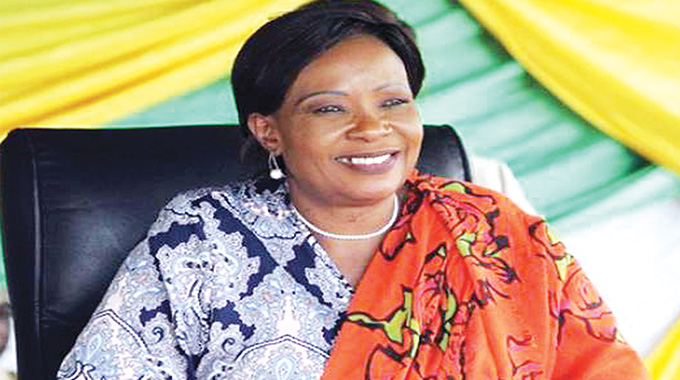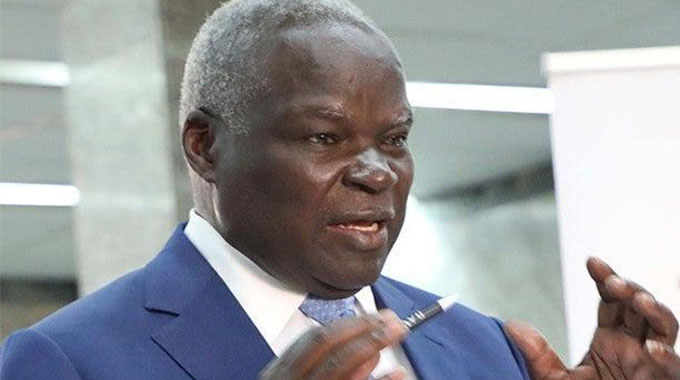Infertility stigma – Women use Whatsapp group for support

Roselyne Sachiti
Amanda Nyandoro (not her real name for fear of stigma), a 29-year-old woman from Harare, is “glued” to her cellphone.
As she scrolls down on a Whatsapp group named “Mummy’s Club”, she reads through messages posted by other members, comforts and advises where she can.
She is one of the 40 women in the Whatsapp group created by females from around the country facing fertility challenges.
Nyandoro has also shared her experiences with group members.
At 20, she married a man who already had a child from a previous union. When they could not conceive nine years into their marriage, all the pressure piled on her.
“I sought medical help and my gynaecologist recommended tuboplasty, a surgical repair of the fallopian tubes,” Nyandoro told our sister paper, The Herald.
“Soon after the procedure, I conceived but lost the baby. The situation was difficult. My husband and I just stayed together because we are married, but everything was not well.”
Being in a group with other women facing fertility issues kept her strong and confident of finding a solution.
“Before I joined the group, I felt so isolated as no one really knew what I was going through,” said Nyandoro. “When I interacted with other women like me, we started to help each other. We shared medical experiences after visiting doctors, encouraging each other to seek help.
“In a desperate search for solutions, we also helped each other look for prophets and even traditional healers for the one reason of getting help to conceive. When you face such a situation, you try anything.”
Through the Whatsapp group, the women have become a family and now know each other well. Each year they go for a retreat outside Harare, pray, eat and share their experiences.
“2019 is our third year doing the get togethers,” said Nyandoro. “The meetings help us a lot as we forget the challenges we face. You are uplifted and even forget all your challenges.”
Through the support, hope and medical interventions, some women in the group have managed to conceive.
“In the time we have known each other, some of our group members have conceived and now have babies,” said Nyandoro. “In the group, we are all mummies and take these babies as ours. They are our miracle babies, we love them. Our first born is now four years and our last born is now five months old.”
Nyandoro is one of the women who met with First Lady Amai Auxillia Mnangagwa at Zimbabwe House in April this year at a social gathering for couples with fertility challenges.
“I thank mummy (First Lady) for engaging women facing fertility issues,’ she said. “She engaged us at a time no one really looked at us. Before the First Lady engaged us, most had tried so hard to raise money for fertility treatments, but we failed.
“Some of the procedures like myomectomies for fibroid removal, and fertility treatments like IVF are very expensive in private hospitals. Only women with patient and well off husbands could afford the treatments.
“Some men feel that spending money on fertility treatment is a waste. Many affected women have to source money on their own.”
Nyandoro and the other women in the Whatsapp group wait patiently for the return of Zimbabwean Obstetrician and Gynaecologist, Dr Harrison Rambanepasi who is currently at IIRRH Hospital, Bangalore in India undergoing In vitro fertilisation (IVF) and embryology training.
Two other doctors will join him and upon their return, they can help many couples with fertility challenges at a lower cost in public hospitals.
All this was made possible through Amai Mnangagwa’s ambassadorial role with “Merck -More than a Mother” initiative.
The “Merck – More than a Mother” initiative aims at empowering infertile women through access to information, education and health and by changing mind-sets.
It will provide medical education and training for medical students and embryologists.
The initiative will also support Government to define policies to improve access to safe and effective fertility care and address the need for interventions to reduce stigmatisation and social suffering of infertile women and the necessity for a team approach to family building among couples.
“With Amai Mnangagwa’s programme, we hope that prices of fertility treatment will go down,” said Nyandoro. “Women can start paying less money in public hospitals.”
Having experienced stigma herself, Nyandoro recounts her experience.
“Our society does not fully understand the whole issue of infertility as women with such a condition are not regarded as people,” she said.
“Society looks down upon us. You always feel that people always want to demean you. This makes you feel aggressive and always in a defence mode. Your opinion is not considered because people look down upon you.”
On many occasions, she said, she missed out on family gatherings just to avoid facing relatives who always spoke negatively about infertility.
Her family understands her situation and always helps her through the emotional journey.
It is more difficult with her in-laws.
“My in-laws and aunts tried to help during the first days, but things changed quickly when my husband married another woman who immediately fell pregnant and now has a child,” said Nyandoro. “They now prefer her. Even though my husband supports me through my journey, it hurts me so much that he married another woman.”
Nyandoro said while out of desperation to try to conceive, women take various herbs they should be careful as some may harm them.
“As women without children, we go through a lot,” she said. “Sometimes you are told to drink a cup of vinegar, salt and oil as this is said to help you immediately conceive. Most women do not know the effects of this on their health. Maybe your problem requires medical attention.
“I drank different concoctions, some that made me have a running tummy in my search for a baby. If a particular concoction did not work that month, I would quickly move to the next just because I desperately wanted a child. At one time I was given some medication. After taking it, a watery liquid come out of my private parts. It had a strong stench and I wondered if I was still human.”
Nyandoro’s experience has taught her that infertility is an illness that can be treated and requires medical help.
“Being given an opportunity, you can be examined and treated successfully,” she said. “I pray each day to hold my baby.”
Because of the ostracism infertile women face, Nyandoro added, they need skills training and financial support to start small businesses.
“Some just want to go to school,” she said. “Others can be recommended to work in opharnages. You just need something that takes the thoughts of being infertile off your mind.”
Family Health director in the Ministry of Health and Child Care, Dr Bernard Madzima, said costs of surgeries like myomectomy — the removal of fibroids from the wall of the uterus – vary from hospital to hospital.
Fibroids cause infertility in some women.
He said waiting periods at public hospitals for the myomectomy procedure currently stands at six months.
“We are delayed by resource shortages,” said Dr Madzima.
“We are only well equipped to do myomectomies. Laparoscopy in Zimbabwe is just coming up. Though we can do hysterectomies laparoscopically at selected hospitals in Harare, we are still not able to do myomectomies through that procedure.
“In Bulawayo and Harare, there are serious skills and equipment challenges for laparoscopy. Theatre time is also limited.”
Dr Madzima said herbal medicines in Zimbabwe were not well researched, making it difficult to recommend them for fertility treatment.
To increase chances of conceiving, he said, couples should make lifestyle changes.
These include moderate exercise, eating a balanced diet and maintaining a healthy weight as being underweight or overweight can affect hormone production or result in disturbances in monthly periods, which can cause infertility.
According to Merck Foundation, there are a number of strategies that may help increase the chances of women becoming pregnant.
“Avoid alcohol and street drugs as they may impair the ability to conceive and have a healthy pregnancy,” says the Foundation. “Do not drink alcohol or use drugs. Women trying to get pregnant should also limit the amount of caffeine intake.”
Merck Foundation also advises men to avoid high temperatures as this can affect sperm production and motility.
“Although this effect is usually temporary, avoid riding motorbikes, hot tubs and steam baths — instead use showers and wear loose pants,” the Foundation advises.
Men should also avoid exposure to industrial and environmental toxins such as paints and petrochemicals which may damage and impact sperm production.
“There is also need to eat a balanced diet and maintaining a healthy weight as obesity is directly related to testosterone levels, which is a key hormone responsible for sperm production,” says the Foundation. “Eating a balanced diet provides the necessary nutrients to optimise sperm function and minimise the effects of factors which may otherwise damage the sperm.”
With a Whatsapp group like Mummy’s Club, and initiatives such as the “Merck — More than a Mother” women facing fertility challenges still have hope.











Comments